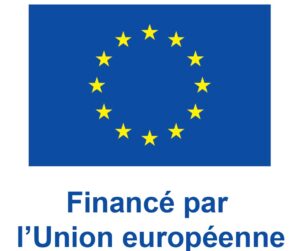Dear BioFITers,
This month, we get the opportunity to know a little bit more on Stefan K. Nilsson, BioFIT 2016 speaker and CEO of Lipigon Pharmaceuticals, a spin-off of Umea University that Stefan co-founded.
Dr. Nilsson will speak in Track 2 session : “Are universities a short-term or a long-term partner for spin-offs ?” scheduled on December 1st at 11.30 am.
- As a researcher who founded his own company, how was the transition from academia to industry? Do you see things differently than before this evolution?
In one way, working in industry is not too different from working in academia. Both environments include innovation and require a large amount of networking. The time of introvert innovation is over. To succeed, you need to build useful networks and work with others. As a start-up, you are often underfunded – I think most academic researchers can relate to this.
What differs is of course that industry is more structured. There is little room to follow up interesting opportunities that you encounter on the way. You often need to focus on the goal. For some researchers, this is probably not a transition. However, this has been challenging for me as I often make quick decisions and change my mind if interesting opportunities arise.
To be honest, I did not fully know what to expect as I made the transition to being a full-time CEO at Lipigon. Many university researchers probably have a naive picture of industry and why shouldn’t they? One can’t expect people to know anything about something they have never been exposed to. In my case, the transition came gradually as Lipigon developed. I still work in academia with my own research group so I haven’t fully made this big leap. Nevertheless, I recognize that my view on both academia and industry has changed. Innovation is a key factor in both, but the degree of freedom is not the same. Together we can work wonders.
- How do you think interaction in the life sciences sector could be improved in order to foster more innovation?
Interaction is indeed key and professional partnering events like BioFIT are important for this interaction. The innovative capabilities of universities and spin-offs have been recognized for a long time by the life sciences sector. Initiatives like the AstraZeneca Bioventure hub is something I think can make a difference.
Knowledge transfer and useful networks could be improved. In general, exchanges between researchers, industry and academia is a one-way street. The incitement to move from industry to academia should be strengthened. This would bring broader and more commercially useful points of contact to academia.
- You are a spin-off from Umea University. Are you still collaborating with research teams from the university?
All the Lipigon co-founders still work in academia – Profs. Olivecrona and Elofsson are full-time professors and I work one day per week with my own group as an assistant professor. Our company was created from long-term research at Umeå University, so this heritage and knowledge bank is something our scientific advisory board can still benefit from.
- Can you describe your key learnings from a collaborative project?
We have been working with AstraZeneca since 2014 and this collaboration accelerated in March when we decided to enter a drug discovery programme together. Combining small company advantages such as agility and quick decision making with big Pharma resources and management is a very good learning experience which helps us to improve. Obviously,the deal-process can be long and adaptation is key, but once all the decisions are made and the go-ahead is given, the collaboration is very efficient and the programme potential very high.
- How do you think we could promote a culture of European entrepreneurial scientists?
When I started our discovery programme, I achieved what academic researchers normally only write about at the end of their funding applications. Translating basic research into drug development is what we all want to do, in theory, but few have the opportunity and ability to do it. The realistic possibility of translating research into products depends on your particular area of research. I was lucky to do my PhD in a research group which had the necessary experience and knowledge about an interesting drug target. Combining this knowledge and having the right infrastructure were essential for my success. The take home message is that we need a) entrepreneurs and b) the right type of support. From an academic point of view, the key question is – how do we turn academic researchers into entrepreneurs and support them afterwards?
In my opinion, it starts with education and seeding the idea of being an entrepreneur. To promote this, we need to include entrepreneurship into basic education programmes. Students should be exposed to the idea of commercialization of academic research early on. Efforts should also be made to encourage this idea throughout PhD programmes and post-doc periods, as these students are more likely to actually develop commercially viable ideas. However, senior scientists should not be neglected either.
When it comes to support, it is important to educate scientists about the possibilities and the opportunities offered by local, national and European innovation structures. I strongly believe that the merit of proven entrepreneurship should be valued when universities recruit for open positions.
- You will be a speaker in the “Are universities a short-term or long term partner for spin-offs?” session. What messages would you like to send to our attendees? Why should they attend this session?
I hope that we can discuss and present some of the nuances buried in this question, which does not have a black-or-white answer. By definition, spin-offs are linked to universities and are of course likely to form long term relationships with them, depending on the maturity of the innovation. For the European life science eco-system, universities definitely play, and will continue to play, a central role in the long term. I think attendees might find it interesting to learn about the Swedish model where universities take no equity in spin-offs but instead provide background support for academic scientists’ entrepreneurial endeavours.
We are looking forward to attending this very promising session, meanwhile don’t hesitate to check Lipigon Pharmaceuticals website for some more information.
Interested in speaking during BioFIT 2016 ? Contact us!














